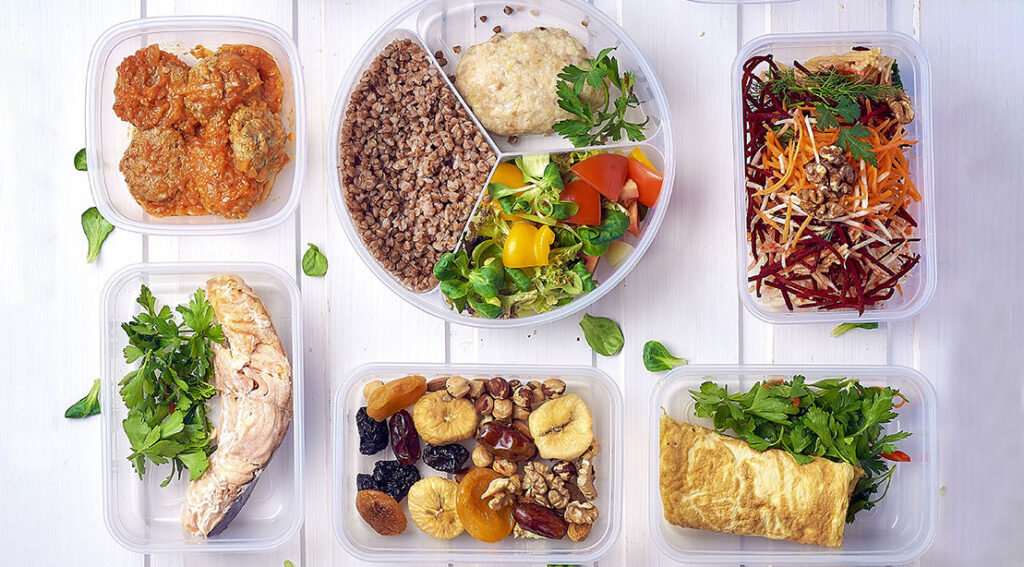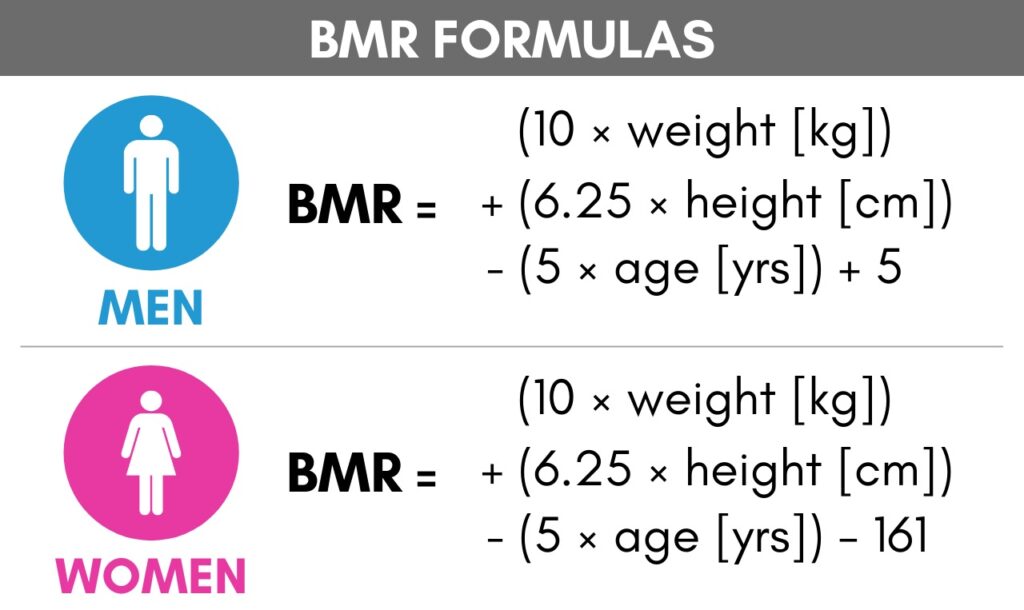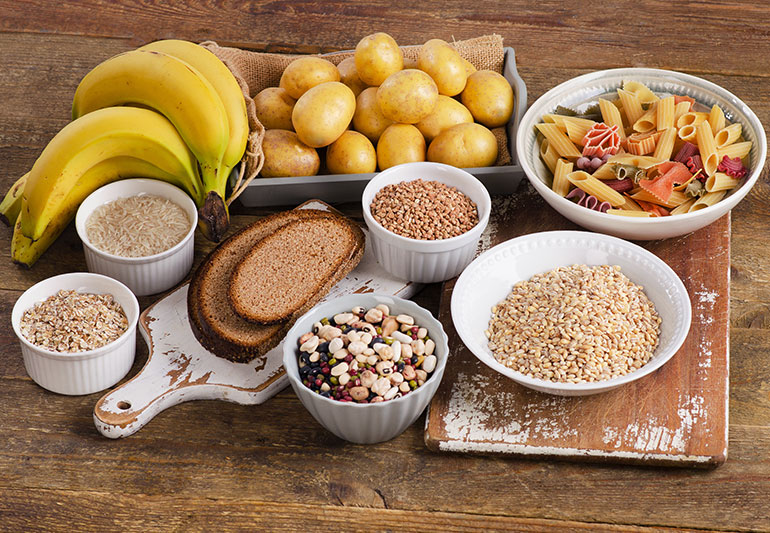In a world where weight loss seems to be a prevailing concern, it’s essential to remember that gaining weight can be just as challenging for some individuals. For those aiming to build muscle, increase body mass, or overcome a medical condition that requires weight gain, understanding the calorie surplus diet is crucial. In this comprehensive guide, we will explore the concept of a calorie surplus diet, its benefits, potential drawbacks, and most importantly, how to implement it effectively.
What is a Calorie Surplus Diet?
A calorie surplus diet is a dietary approach in which an individual consumes more calories than their body needs to maintain its current weight or energy expenditure. This excess of calories provides the additional energy required for various purposes, including muscle growth, tissue repair, and overall weight gain.

It is often used by individuals who want to increase their body mass, build muscle, or overcome conditions that require weight gain, such as underweight concerns or medical conditions. The surplus calories are typically obtained from a balanced diet that includes proteins, carbohydrates, fats, and other essential nutrients to support overall health and ensure that the weight gain is achieved in a healthy manner.
Methods to Start a Calorie Surplus Diet
Implementing a calorie surplus diet effectively requires careful planning and consistency. Here are all the necessary instructions and tips on how to do it.
1. Calculate Your Maintenance Calories
Determine your Basal Metabolic Rate (BMR), which represents the calories your body needs to maintain basic functions at rest.
Factor in your daily activity level using the Harris-Benedict Equation or an online calculator to estimate your Total Daily Energy Expenditure (TDEE). This will give you an idea of how many calories you burn in a day.

2. Set Your Caloric Surplus
To gain weight, you need to consume more calories than your TDEE. A common recommendation is to aim for a surplus of 250-500 calories per day. This allows for steady weight gain without excessive fat accumulation.

3. Focus on Nutrient Quality
Prioritize nutrient-dense foods to ensure you’re gaining weight healthily. Include lean proteins (chicken, fish, lean beef), complex carbohydrates (whole grains, fruits, vegetables), healthy fats (avocado, nuts, olive oil), and a variety of vitamins and minerals.

4. Create a Meal Plan
Plan your daily meals and snacks to meet your calorie goals. Consider dividing your calories into three main meals and two to three snacks throughout the day to make it easier to reach your target.
5. Track Your Intake
Use a food tracking app or journal to monitor your calorie intake. This helps you stay on target and make necessary adjustments.

6. Strength Training
A structured strength training program is essential to include into your workout routine because Strength training helps to ensure that the extra calories you consume are used for muscle growth rather than stored as fat. Focus on compound movements like squats, deadlifts, bench presses, shoulder presses and rows.

7. Hydration
Stay well-hydrated as water is essential for overall health and can support muscle growth and recovery.

8. Monitor Your Progress
Regularly weigh yourself and measure your body composition (body fat percentage). This will help you track your progress profoundly and you can easily make adjustments if necessary.

9. Be Patient and Consistent
Gaining weight, especially in the form of lean muscle, takes time. Be patient with the process and stay consistent with your calorie surplus diet and exercise regimen.
10. Adjust as Needed
Depending on your progress, you may need to adjust your calorie surplus. If you’re not gaining weight as expected, consider increasing your surplus slightly. If you’re gaining weight too quickly, reduce your surplus to maintain a healthy rate of gain.
11. Consult a Professional
If you have specific health concerns or dietary restrictions, it’s advisable to consult with a registered dietitian or a healthcare provider who can create a personalized calorie surplus plan tailored to your needs.


Remember that the key to a successful calorie surplus diet is finding the right balance between consuming extra calories for weight gain and ensuring that those calories come from nutrient-dense sources to support overall health and muscle growth. Stay committed to your plan, stay patient, and give your body the time it needs to adapt and grow.
Benefits of a Calorie Surplus Diet
Now, let’s dive deep into the benefits of a calorie surplus diet: how it can support muscle growth, enhance energy levels, aid recovery, and help individuals achieve their weight gain goals.
Muscle Growth
One of the primary and most well-known benefits of a calorie surplus diet is muscle growth. When you consistently consume more calories than your body needs to maintain its current weight, you provide your muscles with an abundance of energy and nutrients essential for growth and repair. Here’s how it works:
- Caloric Surplus Fuels Muscle Growth: Muscles require extra calories to grow, and a calorie surplus diet provides the energy needed for protein synthesis, which is the process by which muscles repair and increase in size.
- Protein Intake Matters: Protein is a crucial component of muscle growth. In a surplus diet, it’s essential to ensure an adequate intake of protein to support the development and repair of muscle tissues. Foods like lean meats, fish, dairy, and plant-based sources like tofu and legumes are excellent choices.
- Strength Training Synergy: Combining a calorie surplus diet with regular strength training or resistance exercises is the most effective way to promote muscle growth. These exercises stimulate muscle fibers, and the surplus calories provide the necessary resources for muscle recovery and growth.


Increased Energy Levels
Consuming a calorie surplus can lead to a notable increase in energy levels. This heightened energy can manifest in various ways, each of which can be advantageous to different aspects of life.
- Enhanced Physical Performance: With more energy at your disposal, physical activities become more manageable and enjoyable. You may find that you can lift heavier weights, run faster, or perform better in your chosen sport or physical activity.
- Improved Mental Alertness: Adequate energy levels not only impact physical performance but also enhance mental clarity and alertness. This can be particularly beneficial in work, studies, or any cognitive tasks that require focus and concentration.
- General Vitality: Increased energy levels can lead to an overall sense of vitality and well-being, making daily tasks easier to manage and enjoy.


Enhanced Recovery
The extra calories from a calorie surplus diet play a crucial role in the recovery process. Whether you’re an athlete, an active individual, or someone recovering from an injury, here’s how enhanced recovery can benefit you:
- Faster Muscle Recovery: After intense physical activity, muscles need time to repair and grow. A surplus diet ensures that your body has the necessary nutrients and energy to expedite this process, reducing muscle soreness and promoting faster recovery.
- Reduced Fatigue: Enhanced recovery means reduced fatigue. You’ll be able to maintain a higher level of activity and continue to engage in your preferred physical activities without feeling overly tired or drained.
- Injury Prevention: Quicker recovery and reduced fatigue can also contribute to injury prevention. A well-nourished body is more resilient and less prone to injuries resulting from overexertion or inadequate recovery.


Overcoming Underweight Concerns
A calorie surplus diet is often recommended for individuals who are underweight or have difficulty gaining weight due to various factors, including fast metabolisms, medical conditions, or poor eating habits. The benefits of such a diet for these individuals include:
- Healthy Weight Gain: A well-planned calorie surplus diet can help individuals reach a healthy and sustainable body weight. This is particularly important for those who are underweight or at risk of health complications due to insufficient body mass.
- Improved Nutritional Status: Many underweight individuals may also be deficient in essential nutrients. A surplus diet, when designed with a focus on nutrient-dense foods, can help improve overall nutritional status.
- Enhanced Self-Esteem: Gaining weight can boost self-esteem and confidence, especially for those who have struggled with being underweight for a significant portion of their lives. Achieving a healthier body weight can lead to a more positive self-image.
Potential Drawbacks and Risks!
While a calorie surplus diet offers numerous benefits, it’s essential to be aware of potential drawbacks and risks.
Fat Gain
A surplus diet inevitably leads to some fat gain alongside muscle gain thanks to the extra calories that are getting consumed. The degree of fat gain can vary from person to person, making it crucial to monitor your progress and adjust your calorie intake accordingly.


Nutrient Quality
Some individuals may use a calorie surplus diet as an excuse to consume unhealthy, calorie-dense foods. However, it’s important to prioritize nutrient-dense options to ensure you’re gaining weight in a healthy manner.
Weight Maintenance
Maintaining a calorie surplus can be challenging, and there’s a risk of slipping back into a calorie deficit if not carefully monitored. Consistency is key in achieving not only weight gain goals but any fitness goals so stay consistent to your diet and track it properly.



Individual Variability
Everyone’s metabolism and response to a calorie surplus diet can vary. What works for one person may not work for another, necessitating a personalized approach.
Conclusion
A calorie surplus diet can be a valuable tool for individuals looking to gain weight, build muscle, or overcome underweight concerns. However, it must be implemented thoughtfully to maximize the benefits and minimize potential drawbacks. By calculating your maintenance calories, setting an appropriate surplus, prioritizing nutrient-dense foods, and incorporating strength training, you can achieve your weight gain goals in a healthy and sustainable manner. Remember that patience and consistency are key on this journey toward a healthier, more robust you. Hopefully, you found this article about calorie surplus helpful enough. If you really did then let us know your thoughts in the comment section down below. Thanks for visiting and appreciating our work.
